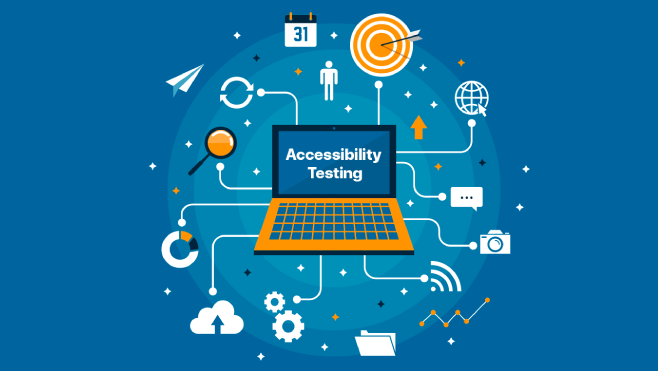Unlocking Digital Inclusivity: A Deep Dive into Accessibility Testing Services
In our increasingly digital world, ensuring
that websites, applications, and software are accessible to everyone is more
critical than ever. Accessibility testing services play a pivotal role in
achieving this goal, ensuring that digital experiences are inclusive and
user-friendly for individuals with diverse abilities. In this blog post, we
will explore the significance of accessibility testing services and how they
contribute to creating a more accessible and inclusive digital landscape.
Understanding
Accessibility Testing:
Accessibility testing is a comprehensive process that evaluates digital content
and platforms to ensure they are usable by individuals with disabilities. This
includes people with visual, auditory, motor, and cognitive impairments. The
goal is to remove barriers that might prevent certain users from fully
experiencing and interacting with digital products.

Key Components
of Accessibility Testing Services:
Web Content
Accessibility Guidelines (WCAG): Accessibility testing services often follow the guidelines outlined in
WCAG, a set of internationally recognized standards for web accessibility.
These guidelines provide a framework for developers and testers to make digital
content more accessible and user-friendly.
Assistive
Technologies Compatibility:
Testing services focus on ensuring compatibility with assistive technologies
such as screen readers, voice recognition software, and magnifiers. This
involves evaluating how well a website or application interacts with these
tools to provide a seamless user experience.
Usability
Testing for People with Disabilities: Accessibility testing services include usability testing with
individuals who have various disabilities. This firsthand feedback is
invaluable in identifying specific challenges users may face and refining the
digital product accordingly.
Cross-Platform
and Cross-Browser Testing:
Accessibility testing extends to various platforms and browsers to guarantee a
consistent experience for users, regardless of the device or browser they
choose. This involves testing on different operating systems, screen sizes, and
resolutions.
Conclusion: Accessibility testing services are integral
to creating a digital environment where everyone, regardless of ability, can
engage seamlessly with online content and applications. Prioritizing
accessibility not only aligns with ethical considerations but also brings
tangible benefits to businesses, making their digital products more widely
accessible and user-friendly. As we continue to navigate the digital landscape,
embracing accessibility testing is a crucial step towards a more inclusive
future.
Post Your Ad Here
Comments